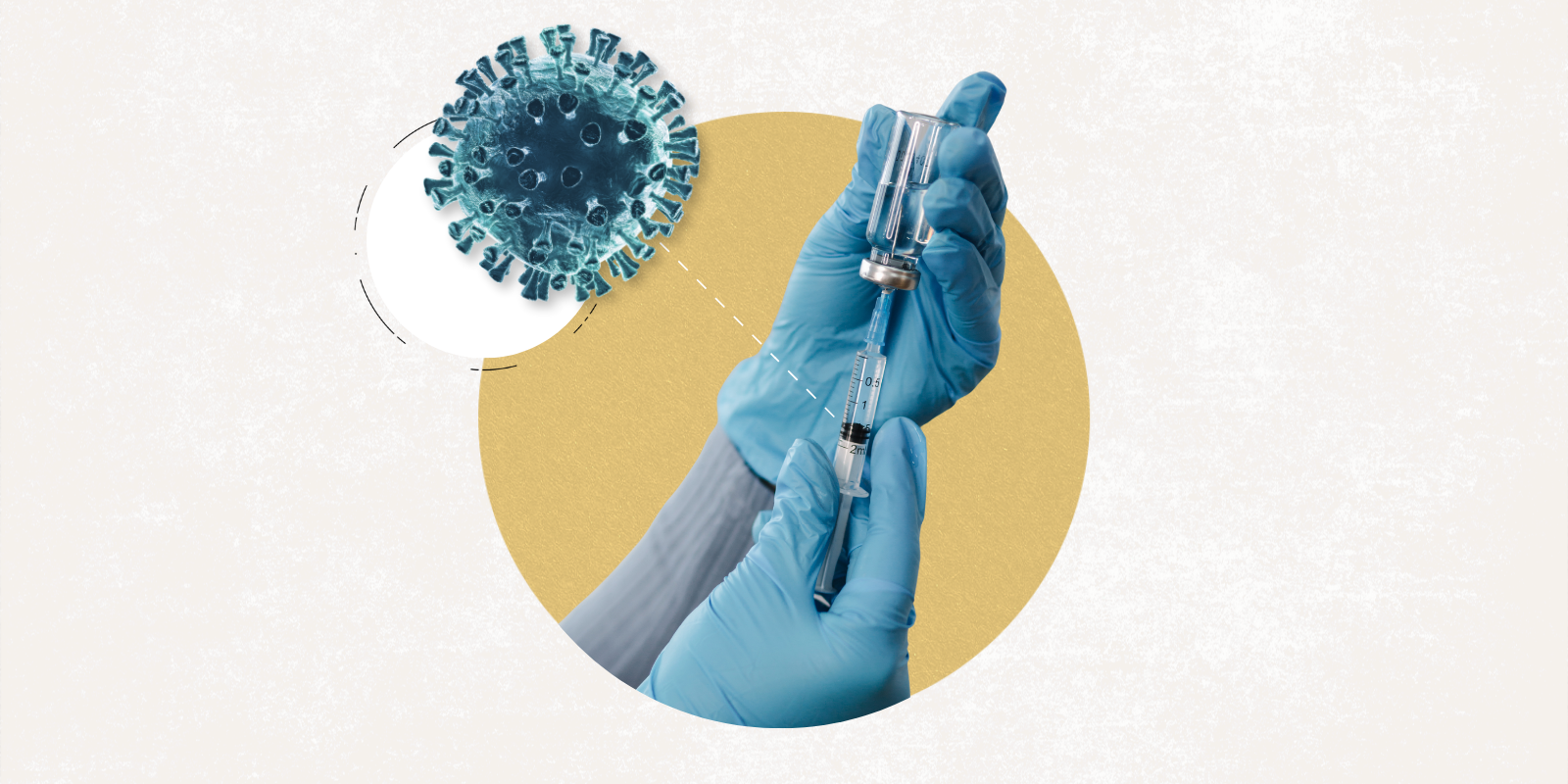Ross Kedl, PhD, doesn’t mince words when he describes the effects of his COVID-19 vaccine: “It packs a wallop,” said the University of Colorado School of Medicine professor.
Kedl, who studies vaccines and teaches in the Department of Immunology and Microbiology at the CU Anschutz Medical Campus, took part in a Phase 3 clinical trial for the Moderna vaccine on campus this past summer.
“It hit me hard for a day,” he said of receiving his second dose, that was obviously not a placebo. “I felt like I’d been hit by a truck.”
But that’s a good thing, Kedl and his colleague, Aimee Bernard, PhD, said.
“Our immune cells are responding to the components in the vaccine and building an immune army that is actively training to fight and destroy the pathogen.” – Aimee Bernard, PhD
Fallout of immunological warfare
Soon after clinical trials for COVID-19 vaccines began, the word began spreading that the effects of stimulating an immune response, particularly after the second dose, were sending people to the couch.
It just means it’s doing its job, the two immunologists say, addressing the widely prevalent misconception that vaccine injection may mean the shot gave them the illness it was designed to prevent.
“Our immune cells are responding to the components in the vaccine and building an immune army that is actively training to fight and destroy the pathogen,” said Bernard, assistant director for the CU Human Immunology & Immunotherapy Initiative.
It’s immunological warfare, and it generally starts right at the injection site, Bernard said of the arm soreness sometimes followed by body aches, fatigue and even fever. “These are all signs that the immune system is working,” she said.
A strong army goes on the attack
The same thing happens when people are infected with the actual virus, Kedl said. “When you feel lousy with the flu, those flu-like symptoms are actually immune-like symptoms.” Fever sets in almost exclusively because of the triggering of the molecule Interleukin-1, he said. “And the reason you feel super achy is because of something called interferon, and that’s also an immune molecule that’s stimulated because of the infection.”
“When you feel lousy with the flu, those flu-like symptoms
are actually immune-like symptoms.” – Ross Kedl, PhD
Vaccines prompt the immune system to recognize and respond to a non-harmful form of a pathogen in order to produce memory cells (T- and B-lymphocytes), Bernard said. “These memory cells then patrol the body looking for the infectious pathogen they were trained to fight.”
When the second dose enters the body, those memory cells are well-armed and ready for attack, initiating an even more robust immune-system response. “Feeling sick is a very good sign,” Bernard said.
Not all reactions are alike
The data for the vaccines being used in the ongoing national rollout suggest about 70% to 80% of people will experience some notable symptoms after the second shot, Kedl said. But in a vaccine setting, the symptoms generally last only 24 to 48 hours, unlike with a real infection – which, in COVID-19’s case, can take people down for weeks or worse, he said.
Because their immune systems begin tapering off after age 65, older people often have fewer symptoms post-vaccine because of a weaker immune response. “But the data seem to indicate they will still have protection,” Kedl said.
Even young, healthy people can have different reactions because of different immune systems and different genetics, Bernard said. “We are all unique.”

.png)

